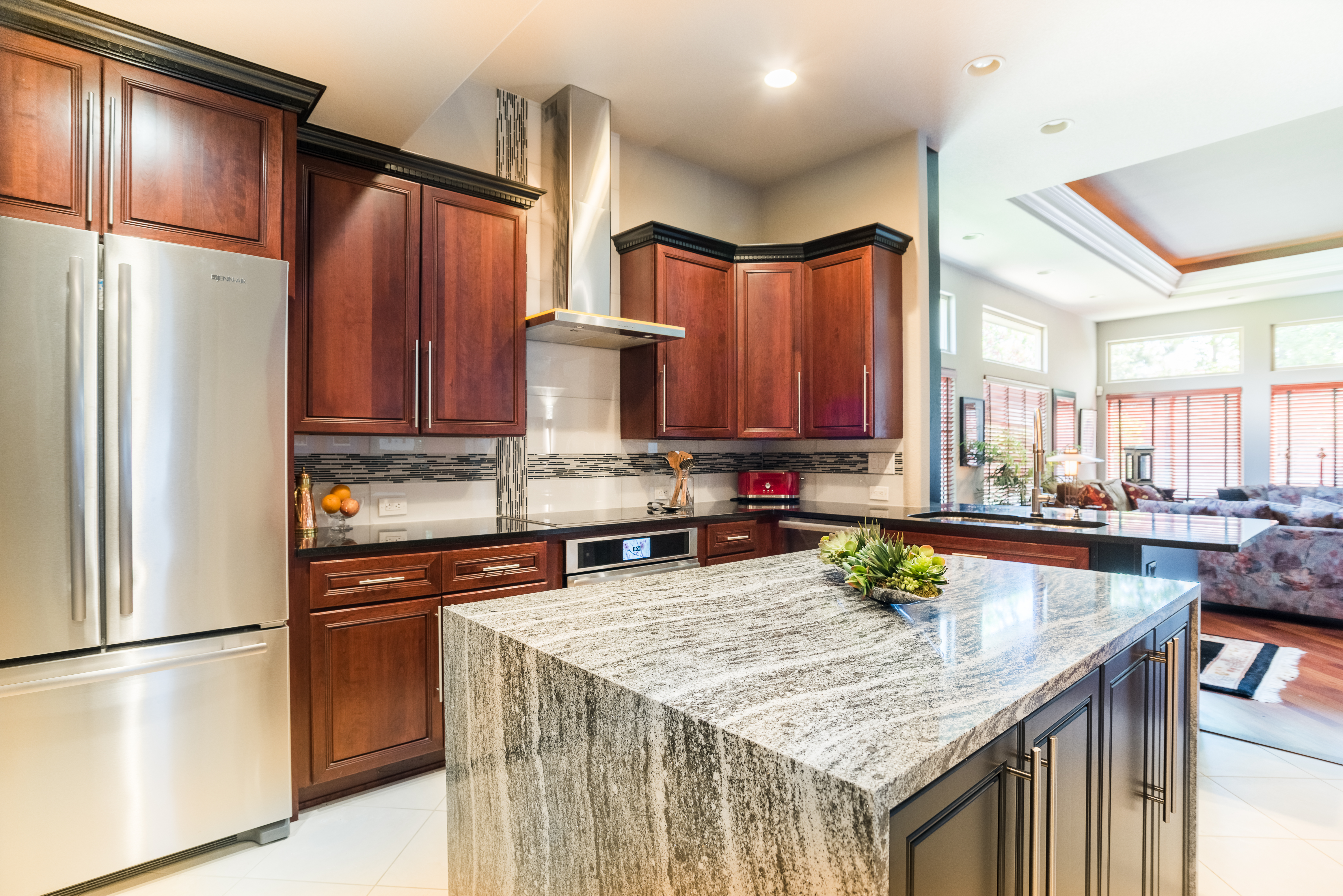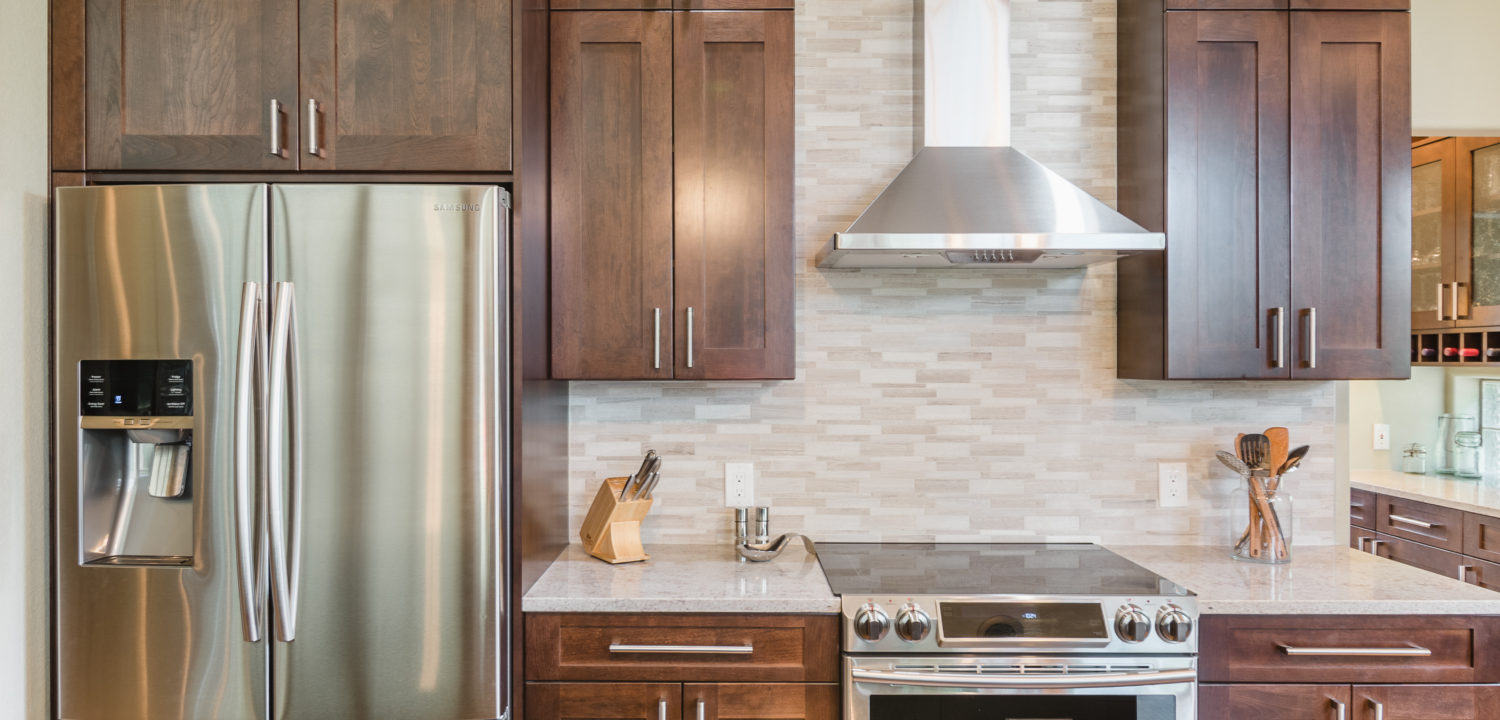The Countertop War: Quartz versus Granite
B eing an entrepreneur, I wear a lot of hats not only because I have different tasks within a business that I have to perform but also because I own multiple businesses. In my design and remodeling business, one of the most common question we get is “Granite or Quartz?”. When discussing countertop options with our design clients we almost always get the question “Which one is better — — granite or quartz?” While we believe that choosing your countertop material is a personal preference, there always seems to be a debate as to which one is the better choice.
To understand the difference between quartz and granite and to help our design clients make their decision as they consider choosing between one and the other, we make sure we go over and talk to them about the pros and cons and the differences (and some similarities) between granite versus quartz.
There are a lot of things to consider when remodeling. Most of us are only going to remodel our home once so it is important to get it right. We want to make sure our design clients get something that fit their lifestyle, doesn’t require much maintenance and make them feel happy at home whenever they walk into their newly remodeled space.

Before we dive into the pros and cons and the differences — — what exactly is granite and quartz?
Granite is a 100% natural stone mined from quarries all around the world. It is a very hard stone and is cut down to a manageable size and polished to a fine finish. Quartz on the other hand is not 100% natural and considered engineered stone because it is manufactured using a large percentage of ground natural quartz and polymer resins.
Maintenance and Durability
Both materials are very durable but there is a decided advantage here to quartz. Because granite is relatively a porous stone, it requires sealing when installed and also requires regular sealing on an ongoing basis. Although granite is resistant to heat and many other kitchen elements there can be staining if spilled liquids are left sitting. The granite slabs may also have inherent flaws that make them prone to cracking and damaged if it receive a high impact blow. Quartz on the other hand does not require sealing. Because of the resins used in the fabrication of the slabs, quartz is uniform throughout which makes it less likely to crack and is more resistant to staining than granite. It can be cleaned by using soap and water or with a household cleaner. It is also less susceptible to harboring bacteria because it is less porous. Quartz can be damaged by excessive heat so remember to use heating pads when you lay your cooking pots on your quartz countertop.
Color and Appearance
Granite comes in many different colors and patterns. There is an almost limitless selection to choose from when it comes to granite. Granite can offer something very subtle to a slab that stands-out due to unique mineral patterns on the slab. There are no two granite slabs that are the same.
Quartz has the look of stone and its appearance is one of the main reasons that this choice has exploded in popularity. Because it is an engineered product, quartz is more uniform in appearance and yet there are still many colors and unique patterns available to choose from.
If you want the look of natural stone, then you may be drawn to choosing granite. However, there are many of our clients who find that quartz options offer looks that are different and better than natural stone. The good news is that you can never go wrong by choosing either one!
Cost
Both granite and quartz are premium, high-dollar countertop materials. These options are not the best for you if you are on a budget. The average cost of granite countertops range from $70 — $104 per square foot installed versus about and average cost of $84 -$112per square foot installed for quartz countertops. The price varies depending on the style chosen, type of edging, quality and treatments requested. It has been found that quartz is approximately 20–40% more expensive than granite. Fabrication and installation for both quartz and granite should be left to the professionals. If you are spending the money for either costly material, it does not make sense to take the risk of installing these materials yourself.
Environmentally Friendly
Both countertop materials are overwhelmingly made of naturel materials. Granite is quarried and therefore uses a lot more energy. Also, depending on where your granite comes from, there are considerable transportation costs involved. Since quartz is engineered, it can be more environmentally friendly than granite if you find a regionally manufactured stone and use local fabricators. This will cut done the distance the material needs to be transported.
Real Estate Appeal
When compared to laminate or ceramic tile countertops, adding a stone countertop to your home will definitely increase your home value and get you a better return on your investment. Having granite or quartz countertops will attract and impress potential home buyers. However, there may be some buyers who give a slight advantage to granite since it is the more natural material.
So what’s the verdict? Granite or Quartz? With what you now know about these two materials, are you able to make an informed decision? Bottom line — — there is no right or wrong when choosing between quartz and granite. Whatever material you are drawn to and whatever choice you make will be perfect! If you are still unsure, we will be more than happy to talk to you more about these two options and help you select the material that is best for you!





Leave a Comment